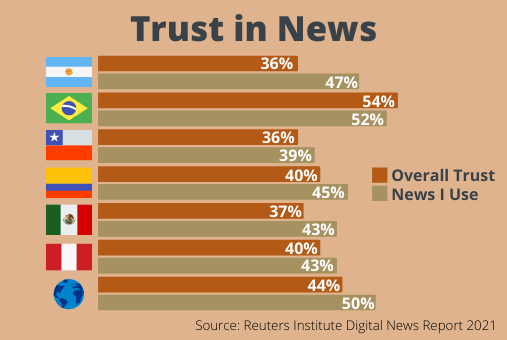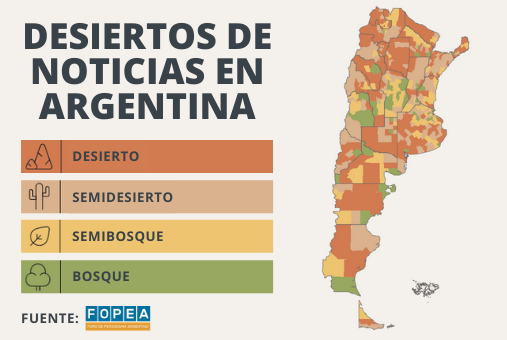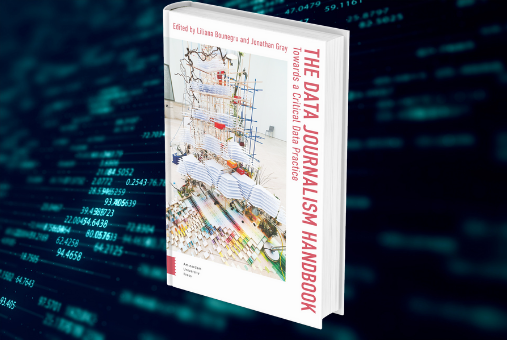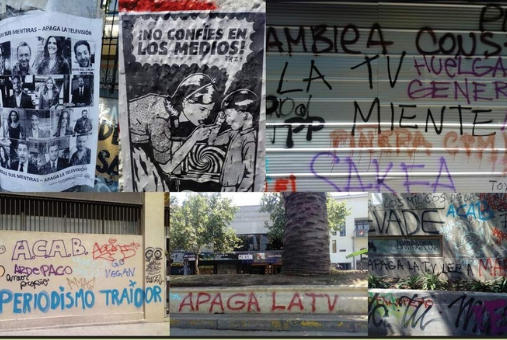
The diagnosis was made by Brazilian researcher Giuliander Carpes, a doctoral candidate in communication and information sciences at the University of Toulouse III who has just published a study on the subject

Globally, trust in the news grew six percentage points and reached 44 percent, according to the 2021 Digital News Report, by the Reuters Institute. In the six Latin American countries investigated, however, general trust in the news is lower, reaching an average of 40.5 percent. In the region, confidence is lowest in Argentina and Chile (36%) and highest in Brazil (54%).

According to Summer Harlow, University of Houston associate professor of journalism and author of the study, the survey suggests a new understanding of the concept of objectivity, as something that does not oppose or prevent journalists from defending causes or participating in protests.

6,600,000 Argentines, equivalent to 16.7 percent of the population, live in places where there is no independent press outlet, that is, in news deserts, according to a study by FOPEA.

“The Data Journalism Handbook: Towards A Critical Data Practice” provides a critical assessment of data journalism itself, nine years after the release of the first book in the series. Latin America is represented in eight chapters, with investigations into the agricultural industry, mapping of trees in urban capitals and large-scale analysis of wiretapping.

Researchers from the Southern Hemisphere often do not have space in prestigious journals to submit their research. The UK-based journal Digital Journalism, one of the most reputable in the discipline, recently published Volume 9 with a special issue on Latin America, with articles by Latin American journalists and researchers.

A total of 138 young people between the ages of 18 and 35, responded to surveys for a study by CIMA, to inquire about news consumption habits and new technologies in young audiences in low- and middle-income countries like Mexico and Colombia.

Pablo J. Boczkowski has dedicated himself in recent years to understanding what it means, for the individual and for societies, to live in a period of "qualitative leap in the amount of information.” Read LJR's interview with Boczkowski.

21 researchers, mostly Latin American, address the lack of media pluralism and diversity of voices in public discourse in the region and how it affects the democratization process

To mark the end of 2020, the LatAm Journalism Review (LJR) team put together a list of the most interesting and important stories we’ve covered this year.

Brazilian research developed an analysis model that assesses the impact of journalists' working conditions on the quality of information published. The study was chosen as the best doctoral thesis of the year by the Brazilian Association of Researchers in Journalism.

Research with readers from Latin American countries indicates that the decision to pay for news is associated with the independence and transparency of the news outlet and suggests that digital media should better communicate these values to their potential audience.